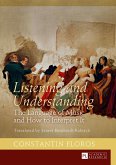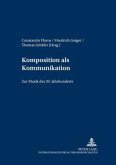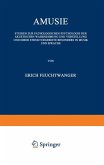Mozart's ambivalent personality offers a key to a deeper understanding of his music. He could be merry, even boisterous, but from many of his works speaks a deep seriousness. Both mirth and melancholy stamp his being. His operatic music includes both the comic and the tragic. The present study treats the special character of his musical language and the relations between his personality and his multiform oeuvre. Its mission is to grasp the peculiarities of his operatic work, his opere serie, opere buffe and singspiels. The chapter "The Program in the Master Overtures" initiates the series of semantic analyses the author has pursued in other books. In the 19th century, it was fashionable to compare Mozart to Raffael. But the comparison is askew, as the graceful is only one side of his personality.
About the German edition
Chapter II "presents new and even surprising insights into the 'program' in Mozart's master overtures. The connection between overture and drama is viewed from both compositional and semantic points of view. The studies, written with great stylistic and literary knowledge, enter deep into Mozart's way of working. For both amateurs and cognoscenti, Floros achieves ad better understanding, above all, of the musical interconnections." (Rudolf Angermüller, Mitteilungen des Mozarteums)
About the German edition
Chapter II "presents new and even surprising insights into the 'program' in Mozart's master overtures. The connection between overture and drama is viewed from both compositional and semantic points of view. The studies, written with great stylistic and literary knowledge, enter deep into Mozart's way of working. For both amateurs and cognoscenti, Floros achieves ad better understanding, above all, of the musical interconnections." (Rudolf Angermüller, Mitteilungen des Mozarteums)







